Impact Report 2024



Dear friends,
As I reflect on 2024, one thing is clear: we are growing. Not just in numbers, but in impact, in reach, and in the passion of those who support our mission. From classrooms to community gardens, the power of pollinator education is transforming the way young minds connect with the natural world.
Here’s the challenge: dozens of schools and organizations are ready to launch their own Bee Cause programs—but they need funding to make it happen.
Your past support has built something incredible. You’ve helped us install hives, plant gardens, and inspire a generation of environmental stewards. Now, we’re asking you to take the next step.
Join us in 2025 to fund:
New Bee Grants—bringing live bees, observation hives, and STEAM education to classrooms.
Pollinator Habitat Grants—creating thriving environments that support both pollinators and food security.
Literacy Grants—providing books and hands-on materials for students in underserved communities.
With your help, we can fund every school on our waitlist and expand to new communities. Whether it’s through a corporate partnership, an individual donation, or a sponsored program, you have the power to make a difference.
Let’s make 2025 our most impactful year yet. Will you fund the next school? Donate or partner today: thebeecause.org/donate

Executive Director & Co-Founder
The Bee Cause Project

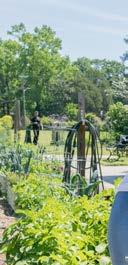
@thebeecause
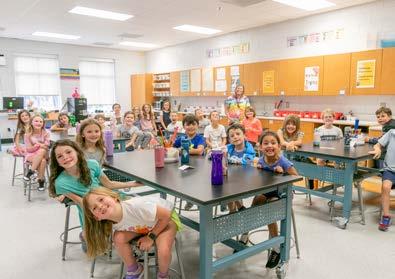
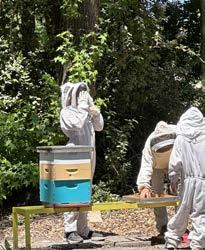
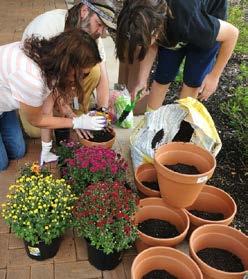
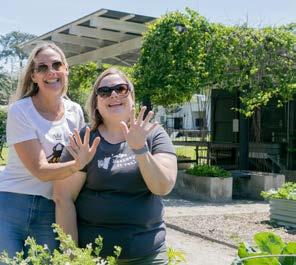
Your support enables us to grow this important work. Together, we’re fostering the next generation of environmental stewards and ensuring that every child has the chance to connect with nature in meaningful, lasting ways.
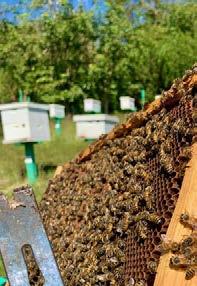
1.4 MILLION
Children Impacted since 2014
These numbers reflect not just growth but real-world change—students learning, pollinators thriving, and communities becoming more connected to the environment.
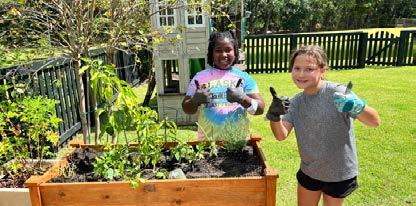
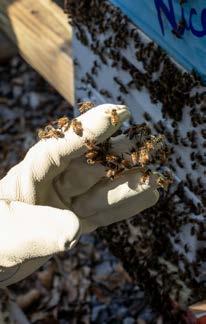
65,820,000 Bees supported since 2014
Since 2014
1,098 70
BEE GRANTS AWARDED
RENEWAL GRANTS AWARDED
766 35
638 20
NATIVE BEE HIVES INTRODUCED
POLLINATOR-THEMED BOOKS DONATED
4,595 260 BEE SANCTUARIES SUPPORTED
6 2
1,020 2024
6
PAY-IT-FORWARD JARS OF HONEY SOLD
DIGITAL HIVES INSTALLED
8,371
61
77 20
POLLINATOR GARDENS PLANTED
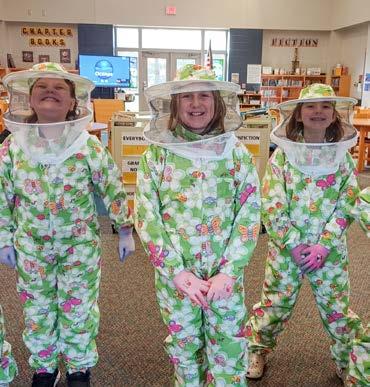
We need your help!
Every child deserves the chance to connect with nature. Right now, schools and organizations across the country are approved and ready to launch their own pollinator programs—but they need funding. We have more requests for funding than ever before. Schools are waiting. Communities are ready. But without support, these programs can’t take flight.
Will you help fund the next school?
» Donate today at thebeecause.org/donate Interested in a corporate partnership?
» Contact us at info@thebeecause.org
Protecting pollinators is critical, but the real legacy of The Bee Cause Project lies in inspiring the next generation of environmental stewards. By engaging students and communities with handson experiences, we’re not just teaching about bees—we’re fostering a lifelong connection to nature and a sense of responsibility for the planet. When young minds see the impact of pollinators firsthand, they develop the curiosity, knowledge, and passion needed to drive meaningful change. These future leaders will carry forward the work of conservation, ensuring that pollinators—and the ecosystems they sustain—continue to thrive for generations to come.

LEARN MORE: thebeecause.org
Your donation today will:
Bring live bees to classrooms, sparking curiosity and environmental stewardship.
Fund pollinator gardens that provide food and habitat for essential species.
Support hands-on learning experiences that empower students to care for their environment.
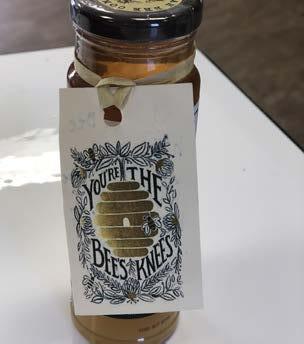

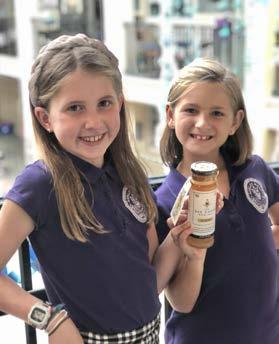

The Pay-It-Forward fundraiser is a unique opportunity for grant recipients to raise funds for their Bee Programs while helping other Bee Cause Project programs get started in schools and community organizations.
We provide 100% pure wildflower honey bottled by Savannah Bee Company that retails at $20 a bottle. For each bottle sold, $10 goes towards the organizations’ Bee Fund and $10 goes towards helping another organization develop their programming.


May Howard Elementary 156
Ashley Hall School 144
SC
Adam J. Lewis Academy 84
WI LEARN MORE: thebeecause.org/pay-it-forward
In 2024, $11,640 was raised through Pay-It-Forward fundraisers!
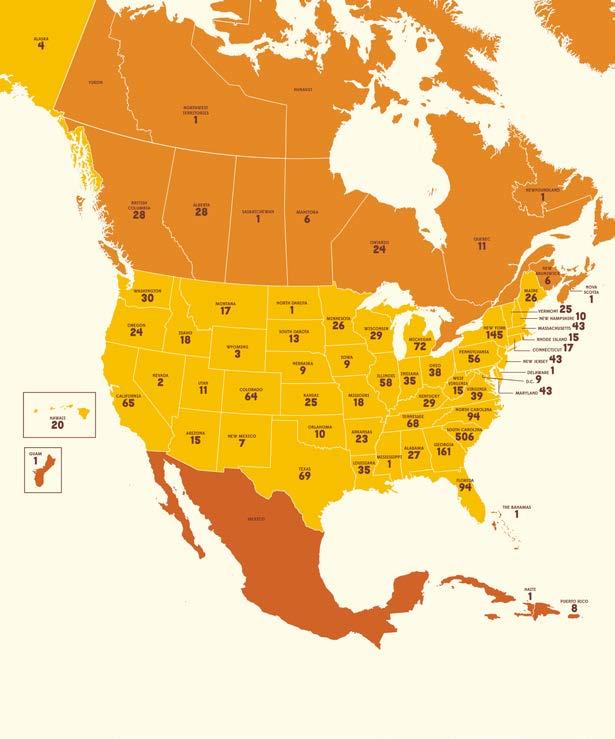
As of February 2025
In our first decade, The Bee Cause Project has grown to have grant recipients in every state in the USA, plus 10 Canadian provinces, Puerto Rico, the Bahamas, Haiti, and Guam!
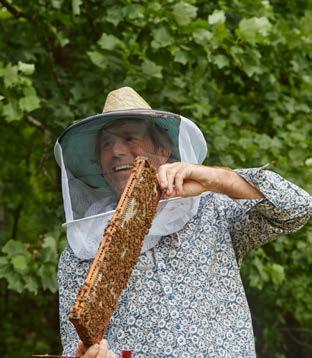
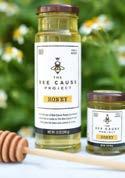
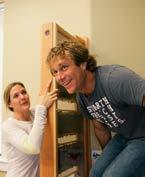
2024 helped me refocus on what I can do and should do with the time in my life… How can I make the best impact on the world and people? It is through bees and the awareness of how monumental their impact is on life as we know it.
TED DENNARD , Founder of Savannah Bee Company
In 2024, Savannah Bee Company deepened its commitment to The Bee Cause Project, expanding efforts to educate, engage, and inspire customers about pollinator conservation. What began as a grassroots initiative installing hives in schools has grown into a powerful partnership reaching millions each year.
Savannah Bee Company isn’t just a financial supporter— it’s a champion for awareness, using its platforms, retail spaces, and customer relationships to amplify our shared mission. In 2024 alone, 23,500 bottles of Bee Cause Honey were sold, spreading the message of pollinator protection nationwide.
Beyond financial support, one of the key ways Savannah Bee Company expanded its impact this year was through strategic and consistent messaging. Recognizing that advocacy and education require repetition, the company followed the marketing “rule of 7” – ensuring that consumers encountered The Bee Cause Project at multiple touchpoints, across various channels, and in ways that made a lasting impression.
For Ted Dennard, the work of The Bee Cause Project is personal. As both the founder of Savannah Bee Company and a co-founder of The Bee Cause, he continues to champion pollinator education in every conversation with customers and employees.
“I talk about The Bee Cause Project in most every talk that I have with customers and team,” Ted shares. “It is a great and demonstrable way to get the point across that bees and honey have an expanding ripple effect of good – just like the beehive does in nature.”
Savannah Bee Company proves that a business can integrate purpose with profit in a way that benefits both the company and the cause. Their model shows other businesses how deeply and creatively they can engage with a nonprofit partner – whether through co-branded products, marketing integration, or immersive customer experiences.
The collaboration between Savannah Bee Company and The Bee Cause Project continues to grow. In 2025, Ted plans to deepen this connection, expand initiatives, boost corporate engagement, and find new ways to support The Bee Cause in every customer interaction.
Savannah Bee Company proves that corporate partnerships drive real change. Through creativity, passion, and commitment, they’ve built a movement that inspires businesses, educators, and pollinator advocates worldwide.
In 2024, customers, employees, and business partners were introduced to The Bee Cause in creative and unexpected ways:
The company’s newspaper, the B., reached 280+ Hive members, VIP customers, and visitors in all 15 retail stores and trade show booths. Every issue featured updates about The Bee Cause Project with Tami Enright, The Bee Cause Project’s Executive Director.
Savannah Bee integrated The Bee Cause into email marketing, SMS campaigns, and updated website content, helping keep pollinator education at the forefront for their extensive customer base.
Large, beautifully framed Bee Cause impact images were featured in Savannah Bee Company’s Gift & Gourmet trade show booths, ensuring that thousands of potential buyers learned about the partnership. Additionally, The Bee Cause was highlighted in Savannah Bee’s wholesale catalog, which had a print run of 7,500 copies and was also distributed digitally.
With two million customers visiting Savannah Bee’s retail stores in 2024, The Bee Cause message was on full display. Employees played a critical role in spreading the message, engaging customers one-on-one in all 15 retail locations. A standout initiative was the Myrtle Beach store’s new Adopt-aBee display, featuring a 4-foot denim “swarm” hanging from a wooden tree, gold bee pins for customers to place, and a ship’s bell rung with all 19,120 bees adopted.
In addition to raising awareness, Savannah Bee Company gave customers the opportunity to directly support The Bee Cause Project through product purchases, donations, and interactive programs. The impact was incredible:
» 23,500 bottles of Bee Cause Honey sold
» 19,120 customers “adopted” a bee for $1 each
» $10,390 in direct donations
» 2,000 Bee Cause stickers sold
» 4,000 visitors toured Savannah Bee’s garden, where the observation hive served as a conversation starter about The Bee Cause Project’s school hive installations
Every purchase, every donation, and every interaction reinforced the message that saving pollinators is something everyone can be part of.
The Bee Cause Project is the greatest and easiest movement to get behind. It appeals to everyone –students, schools, bees, the environment. What’s not to love?
-Ted Dennard
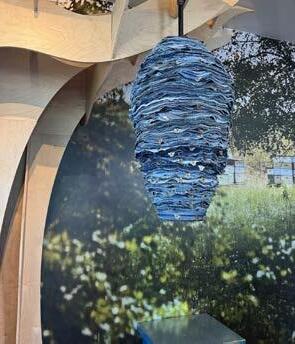
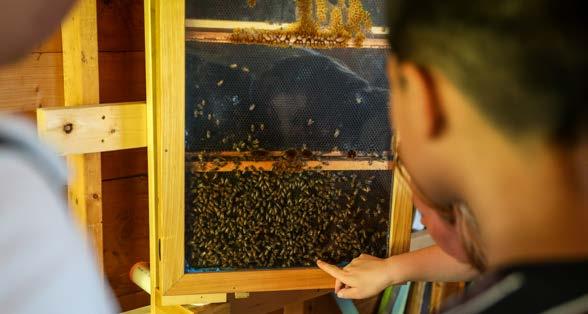
Since 2015, The Bee Cause Project and Whole Kids* have worked together to bring hands-on pollinator education to schools across the U.S. and Canada. What started as a bold vision to connect kids with pollinators has blossomed into a transformational program that has reached over 1.4 million students and awarded more than 960 Bee Grants to schools and non-profits.
In 2024, this partnership reached an exciting milestone: the expansion of the Bee Grant program from 100 to 150 grants annually. This expansion represents a significant commitment to growing the next generation’s commitment to conservation and ensuring that more students have the opportunity to experience the magic of honey bees firsthand.
The Bee Grant program goes beyond simply installing hives – it introduces students to the interconnectedness of food systems, environmental stewardship, and sustainability. Through their Bee Grants, schools have created dynamic, cross-disciplinary learning
experiences that incorporate science, technology, engineering, art, and math (STEAM) while fostering a deep respect for the natural world.
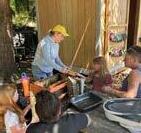

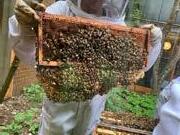
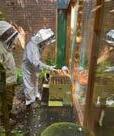
Over the past nine years, the Bee Grant program has evolved in response to the needs of educators, schools, and communities. The goal has always been to make pollinator education accessible and engaging while providing schools with the tools, resources, and support they need to integrate live bees and pollinator-friendly habitats into their learning environments.
The first Bee Grants were awarded, creating immersive, hands-on pollinator learning opportunities for students and communities.
The program expanded with additional funding, curriculum, and a network of educators trained in pollinator education.
“We believe it is important for everyone, especially children, to know where their food comes from. That means starting at the beginning of the food system to understand why pollinators are key players,” shares Emilee Elingburg, Director of Educational Programs at The Bee Cause Project.
By caring for bees and observing hive activity, students gain real-world insights into agriculture, ecology, and environmental responsibility. They begin to see how pollinators impact their daily lives – from the fresh fruits in their lunchbox to the flowers in their school garden.
The impact of the Bee Grant program extends far beyond students – it also empowers educators with the resources and training they need to confidently incorporate pollinator education into their classrooms.
Schools that receive a Bee Grant gain access to:
» Customized curriculum aligned with national education standards
» One-on-one consultations with The Bee Cause to guide hive installation and program development
» Safety training and risk management support for bringing live bees to campus
» Ongoing professional development opportunities for educators
Renewal Bee Grants are launched, allowing schools to expand their programs, providing even more students with immersive, hands-on experiences.
The Bee Grant program grew from 100 to 150 grants, reflecting the overwhelming demand for more pollinator educational tools.
With additional funding from Whole Kids, 2024 was a year of remarkable growth. Expanding the program to 150 Bee Grants per year means more students than ever will have access to pollinator education. This growth also provides extra support for schools in underserved communities, helping them successfully implement their programs while allowing ongoing curriculum development to evolve—making pollinator education even more engaging and effective.
Additionally, more renewal Bee Grants will help sustain past programs, ensuring their long-term success.
As the Bee Grant program enters its tenth year, its mission to make pollinator education accessible and impactful remains strong.
Whole Foods Market Foundation and The Bee Cause Project continue to expand their reach, enhancing educator training and resources to support schools at every stage. This partnership shows that when businesses, nonprofits, and educators unite, real change happens. More than just funding, the Bee Grant program is a movement shaping the future of environmental education—one hive at a time.
Schools interested in a 2025 Bee Grant can learn more at Whole Kids or The Bee Cause Project.
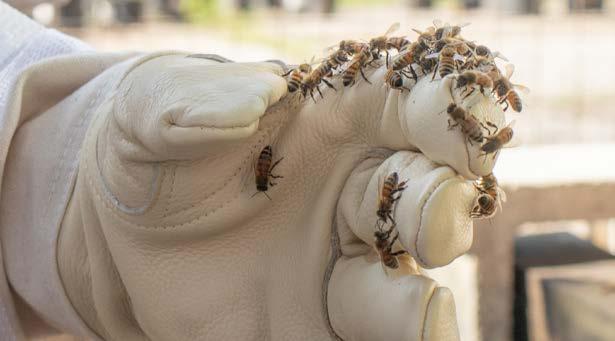
It’s easy to fall in love with a honey bee. They’re fuzzy. They make delicious honey. They dance to communicate with one another.
For us at The Bee Cause, their appeal extends far beyond their endearing traits. The honey bee is an excellent stepping-off point for learning the intricate web of life cycles and food chains that bind us all together. And perhaps most importantly, studying the humble honey bee allows children to understand their own profound influence on, and reliance upon, the environment.
For a decade, we have witnessed the awe and curiosity that pollinators inspire in thousands of young minds, and it’s our hope that these touch points spark something more profound.
With every hive exploration or queen bee-spotting serving as the kindling for a deeper passion for the natural world. Our Bee Grant program allows for a school or non-profit
organization to receive support for a live bee program to utilize for pollinator education, enhancement of student STEAM skills, and development of a life-time love of conservation and environmental protection.
When we started, it was a wild idea. Ten years on, we’ve given grants to benefit thousands of educators and over one million children.
Yes, we help put live bee hives in schoolyards and community parks!
In fact, we’re fielding more requests for living bee hives in schools than we can currently fund. And that’s where you come in. The experience of observing, learning from, and helping to maintain a living, buzzing hive of bees
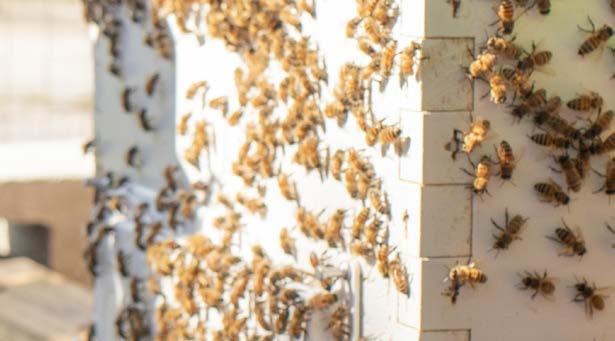
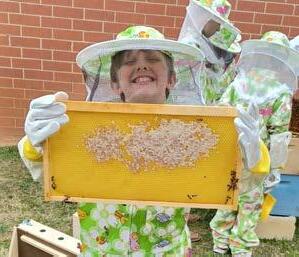
cannot be overstated. It’s a formative experience that a child carries with them throughout their lifetime.
Our partners play a pivotal role in fostering the environmental stewards of tomorrow, providing students with the tools and experiences they need to develop a lifelong love for the natural world.

Reach out to make a lasting difference today: info@thebeecause.org
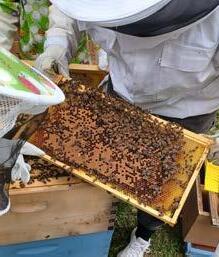
Why bees? No creature demonstrates the value of hard work, the power of collective impact, and the importance of the individual to the whole more than the honey bee. The Bee Cause Project has grown far beyond the hive; we teach collaboration, inspire curiosity, and foster STEAM skills through discovery-based learning in growing minds around the world. We’re inspiring the next generation of environmental stewards for a better, brighter future. And that’s worth buzzing about.
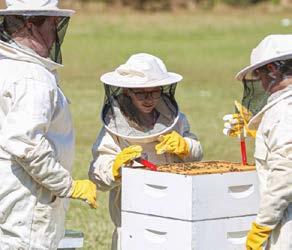
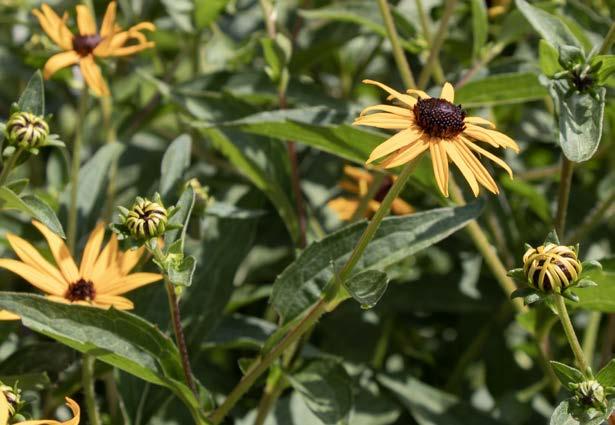
The research is clear: authentic, hands-on environmental education, under the guidance of passionate mentors, cultivates a deep-seated connectedness to nature. When nurtured, this connection can endure into adulthood, turning eager, nature-loving children into ecologically responsible adults who will have the knowledge and passion to lead our planet to a cleaner, greener future.

Our Pollinator Habitat Grant program aims to bring more hands-on environmental learning experiences to schools and organizations across the country and beyond.
This Pollinator Habitat Grant program supports educators from all backgrounds, providing them with the knowledge, skills, materials, and support network necessary to create or enhance pollinator habitats and utilize them as educational tools for experiential learning.
All
, an award-winning online course created in partnership with Clemson Cooperative Extension, SC Ag in the Classroom, and the University of Georgia Cooperative Extension.
The end result is a sustainable, campus-based pollinator garden that supports bees, butterflies, and beneficial insects through habitat building, community education, and good old-fashioned hands in the soil.

The children feel a connection to what is happening in the garden because they take part in caring for the space. Some have started gardens of their own! Their excitement is contagious!
FURMAN UNIVERSITY CHILD DEVELOPMENT CENTER, Pollinator Habitat
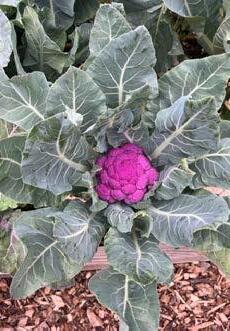
Grant recipient
Skills for life outside the garden
Clemson Extension’s Patricia Whitener received a Pollinator Habitat Grant to install a pollinator garden within Conestee Nature Preserve. She says the skills learned in the space go beyond the basics of watering and planting. “One of my favorite skills to highlight in the garden are simple observational skills; mindfulness. Breathe, notice, feel the sun on your skin, the fuzziness of the leaf, the edges of the stems. Smell the bee balm and mountain mint, take a moment to really see the diversity of insects at all levels of the garden from the tops of flowers to the soil beneath. The most important skill I teach in the garden is how to just Be.”
By fostering hands-on experiences and deep connections to nature, the Pollinator Habitat Grant program is preparing the next generation of nature champions. Whether through planting, observing, or simply being present in these vibrant spaces, students and educators alike gain lifelong skills that extend far beyond the garden. With each new habitat, we are not just creating a refuge for pollinators—we are cultivating curiosity, mindfulness, and a lasting commitment to protecting the natural world.

Help us grow: info@thebeecause.org
The communities in which new pollinator habitats are built are set to immediately benefit.
More habitat means more pollinators needed to keep our food systems functioning and flourishing.
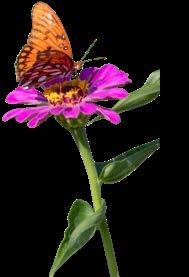
In our Pollinator Habitat Grant pilot program, it was estimated that a newly installed pollinator habitat doubled the amount of food harvested in a nearby community garden, allowing 45+ lbs of vegetables and herbs to be donated to local food banks from a single harvest.
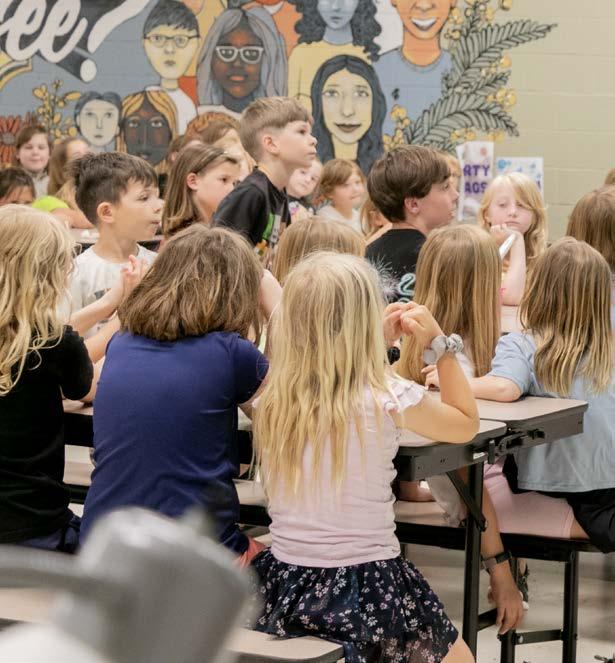
Every educational journey is unique, especially when it comes to fostering an understanding and appreciation of our planet’s precious pollinators. That’s why we created our Literacy Grant – a versatile, custom-curated program designed to meet educators and organizations at any stage of their pollinator education journey.
Our Literacy Grant is perfect for schools and organizations not yet ready or unable to host live bees or a pollinator habitat on campus. Whether it’s logistical constraints, regulatory limitations, or simply a preference for starting small, this grant ensures that everyone can still make a significant impact in pollinator education.
We believe that every step towards understanding and protecting pollinators is a leap towards a healthier planet. Our Literacy Grant is designed to be flexible and accessible, accommodating various needs and budgets.

Let’s spread the word together: info@thebeecause.org
Custom Curated Resources: We offer a range of tailored materials, from engaging posters and informative books to interactive activities. These resources are designed to spark conversations and deepen understanding of pollinators in any environment. Often, we can provide books along with lesson plans to let educators incorporate pollinator education directly into their curriculum.
Honey Tasting Kit: Experience the diversity of nature with a honey-tasting kit. This sensory activity not only delights the palate but also serves as a practical lesson in biodiversity and the vital role of bees in our food system.
Seed Ball Kits: For those ready to dip their toes into habitat support, our seed ball kits offer a hands-on experience. They’re a simple yet effective way to introduce the concept of pollinator-friendly planting, even in limited spaces.
Native bee hives: A popular inclusion in literacy grant kits, native bee hives allow students another way of gaining a deep understanding of these fascinating, gentle pollinators and their life cycles. Unlike honey bee hives, they require very little resources and upkeep to install and maintain.
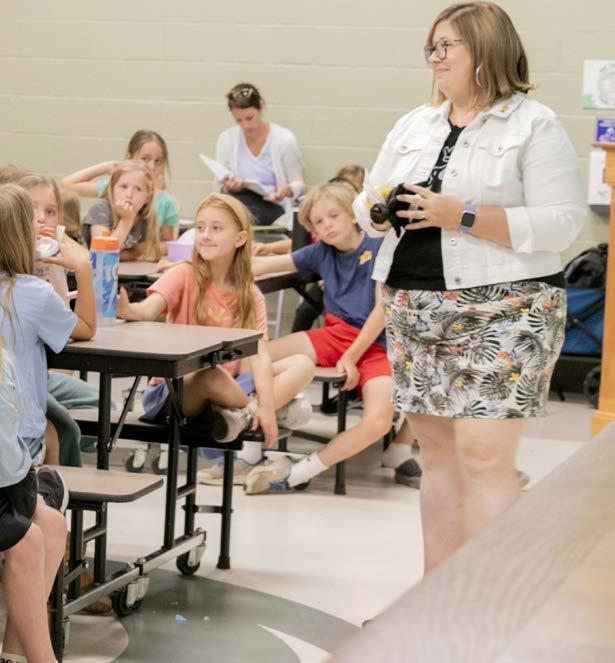

Any, all of the above, or something new: Education is always evolving, and we’re keeping our eyes and ears open to fresh new ideas! If it advances pollinator education in any way, we want to hear about it.

the resources required to sustain a living colony of honey bees. This innovative tool provides a 24/7 live feed into an active beehive, offering a real-time look at bee behavior and hive activity.
Complemented by engaging educational content, fascinating honey bee facts, and interactive learning opportunities, the experience deepens the connection between people and pollinators. Plus, it can be customized with messaging around a school or company’s sustainability goals, making it a powerful way to inspire environmental stewardship and promote pollinator awareness in any setting.
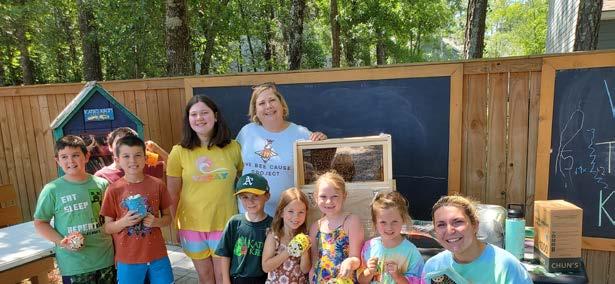
The buzzing, the stingers, the rapid, unfamiliar movements. The innate instinct to swat, duck, and run. Even the most seasoned gardener has to fight the urge to flinch or dodge an oncoming bee—a natural response shaped by thousands of years of survival instincts.
What happens when we bring live bees and pollinator gardens to school campuses, introducing children to buzzing, flying insects at a time when their brains are forming lifelong connections and behaviors?
Turns out, a little bit of magic.
Creating opportunities for children to engage in handson, face-to-face interactions with insects—and to witness their powerful impact on the planet—fosters a deeper, more personal connection between young learners and the environment.
Grant recipient educators share stories of how their students interact with the bees, and research confirms what we see firsthand: hands-on learning builds deep empathy for nature.
Studies have shown that experiential learning leads to higher engagement, deeper retention, and a stronger sense of stewardship toward the natural world.
Direct, hands-on experiences, like planting a garden, checking a beehive, or harvesting honey, increase environmental awareness and empathy among students.
It also strengthens critical thinking and problem-solving skills, helping students understand how their decisions and actions affect the environment. These experiences equip students with the tools to address environmental challenges—and develop critical thinking skills that extend far beyond the classroom.
A well-structured environmental education can also help alleviate climate anxiety—a chronic fear of environmental doom—by providing clear explanations of environmental challenges and actionable solutions. This empowers individuals, especially young learners, to see themselves as capable contributors to environmental preservation—giving them hands-on ways to make a real, tangible difference.
These early experiences don’t just shape students— they inspire families and entire communities to rethink their relationship with nature. Many schools report that pollinator gardens and hives become hubs of environmental awareness, sparking school-wide sustainability initiatives and even influencing local policies.
A contagious enthusiasm for pollinators doesn’t stop in the classroom—it spreads. What starts as a single child learning about the role of bees quickly ripples through families, neighborhoods, and entire communities. Parents hear about the excitement firsthand, inspiring them to plant native flowers, reduce pesticide use, or even start backyard hives of their own.
“I LOVE the bees,” one parent of a Bee Grant participant told us. “The kids would tell me about what they learned from the hive, and I had to go see for myself.”
For many students, these experiences don’t just create short-term excitement—they plant the seeds for a lifelong connection to the natural world. Children who once feared bees grow into adults who advocate for pollinators, choose careers in environmental science, or make sustainability a core part of their lives. Schools that start with a single beehive often expand into broader conservation efforts, from native plant restoration projects to student-led environmental initiatives.
The knowledge and appreciation gained from these hands-on experiences extend far beyond childhood, shaping a future where people and pollinators can thrive together.
What begins as an instinct to swat, duck, and run transforms into curiosity, care, and confidence. By replacing fear with fascination and uncertainty with understanding, we’re shaping the next generation of ecologically responsible adults —one buzzing lesson at a time!
“There are a lot of things I want to be when I grow up, and beekeeper is one of them now.”
Emma, 5 years old
“I was afraid of bees, but now I think they’re really cute!”
Clarisse, 12 years old
“You know I used to be afraid of bees, but now I like them.”
Jack, 5 years old
“If you want to protect the planet, start with bees.”
Charlie, 10th grade
“We see some bees around - luckily for us!”
Seth, 3rd grade
“Those bees sure sound busy!, I hope the queen gives them a day off”
Hannah, 6 years old
“I like the bee program because it’s taught me how to be comfortable around bees.”
Amelia, 9 years old

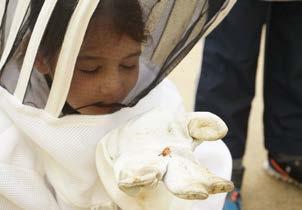
We consulted studies and referenced resources for this research spotlight from these and other organizations: North American Association for Environmental Education, Project Learning Tree, National Environmental Education Foundation, Earth.org, and Children & Nature Network.
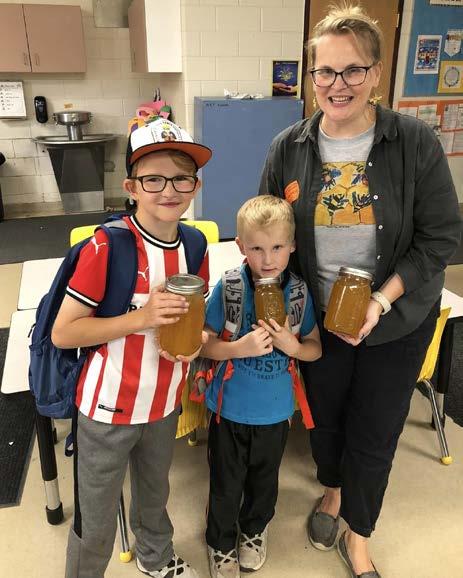
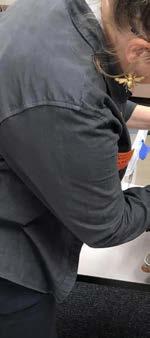
At Houghton Elementary School, students celebrated a remarkable milestone in 2024: their first-ever honey harvest. This achievement wasn’t just about collecting jars of golden honey - it became a hands-on learning experience that bridged science, art, entrepreneurship, and environmental stewardship.
This multi-faceted approach demonstrates how bee education is more than science - it teaches life skills, fosters creativity, and deepens students’ connection to the natural world.
Houghton Elementary students went beyond academics - they developed a genuine respect for pollinators. They named their queen bee, tracked her activities, and learned how bees adapt to weather conditions.
“When they start taking care of the bees, they start caring about the bees,” Tami Enright, Co-founder and Executive Director of The Bee Cause Project, explains.
“Once the students saw how hard the bees worked day in and day out, the fear went away. They began to realize that the bees had a job to do and couldn’t be bothered by chasing kids.”
This shift from fear to fascination is a testament to the power of experiential education.
Houghton Elementary’s success is made possible by partnerships like the one with Whole Kids. Together with The Bee Cause Project, they’ve enabled hundreds of schools to benefit from Bee Grants, reaching over 1.4 million students across the U.S. and Canada.
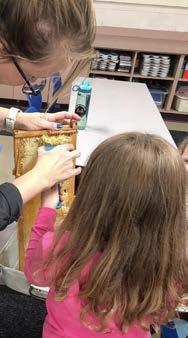
At Houghton, students actively participated in their school’s bee program and engaged in:
» Observing bees up close, understanding pollination, and learning about hive behavior in real-time.
» Designing labels for honey jars to support future pollinator projects.
» Planning and managing a Valentine’s Day honey sale, introducing the concepts of fundraising and small business operations.
Whole Kids and The Bee Cause Project have also developed a honey bee curriculum that brings critical thinking and STEAM skills into the classroom, ensuring a lasting connection between students and pollinators.
Houghton Elementary’s story showcases the transformative power of pollinator education. Their journey is proof of how connecting kids with nature through hands-on experiences can create lasting change.
At The Bee Cause Project, we believe bees don’t just teach science - they inspire a lifelong appreciation for the natural world. Together, we can ensure that every child has the opportunity to connect with and protect the environment, securing a brighter and more sustainable future for all.
• Support Pollinator Education: Donations to The Bee Cause Project directly fund bee programs in schools, creating meaningful learning opportunities for students.
• Spread Awareness: Sharing success stories like Houghton’s can inspire other communities to embrace pollinator education programs.
• Get Involved: From volunteering to advocating for pollinator-friendly initiatives, every effort helps shape the next generation of environmental leaders. Start today: info@thebeecause.org
Help us bring this experience to more schools.
DONATE TODAY: THEBEECAUSE.ORG


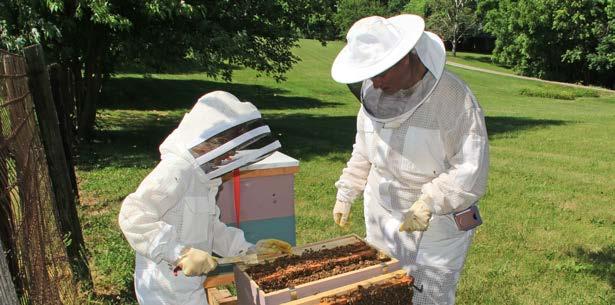
For the past three years, the Ohana East Foundation has partnered with The Bee Cause Project and Clemson Extension to expand the South Carolina 4-H Honey Bee Project, providing students across the state with interactive tools and experiences that spark curiosity, build confidence, and create lasting connections with pollinators.
“Ohana East is a foundation that funds and nurtures environmental missions that can sustain and improve the world around us,” Director Paul Strickler tells us.
Paul’s passion for pollinators and 4-H programs comes from personal experiences with both.
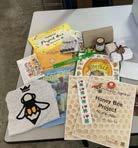
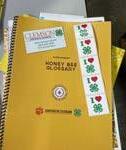
“As a former 4-Her, I know the impact that agricultural education can make on a lifetime. If we help young people to understand pollinators and how they silently and ceaselessly work for us, perhaps it will expand, like ripples on a pond to educate society as a whole.”
That belief in education has guided Ohana East’s support of The Bee Cause Project’s efforts to bring pollinator education to 4-H students across the state.
Since 2021, The Bee Cause Project has supplied participating students with pollinator-themed books and granted students and families full access to The Bee Cause OER Commons Group, a resource hub filled with lesson plans, instructional videos, and interactive challenges.
A variety of live & virtual experiences complement these resources.
» Live Hive Inspection Webinar – Real-time beekeeping demonstration with an expert Q&A
» Growing a Career in Food Systems – Virtual talk with Nikki Seibert-Kelley on sustainable agriculture
» Honey Bee Jamboree – Honey tasting and tour of Savannah Bee Company’s garden and bottling process

“Honey bees may be the single most important animal on the planet, a non-negotiable link from the warmth and energy of our sun to the food that graces our tables.”
PAUL STRICKLER, Director of Ohana East Family Foundation

Patricia Whitener, Clemson Extension 4-H Natural Resources Program Leader, credits The Bee Cause with providing invaluable support to the 4-H Honey Bee Project.
“There are many ways to learn about pollinators, but having a local expert network is invaluable. The Bee Cause goes beyond funding—they help connect youth with beekeeping mentors, provide high-quality educational materials, and feature local farmers and experts,” Patricia says. “They are true community builders and my go-to resource for developing programs and creating habitat.”
With 638 native bee hives introduced, 77 pollinator gardens planted, and 260 pollinator books provided in 2024, this partnership continues to grow and evolve.
“The 4-Hers that are taking the program are learning the basics of beekeeping, although they don’t necessarily have to become beekeepers,” Paul explains. “It’s enough, and perhaps more important, to learn to value them.
“Learning the secrets of bees is fascinating stuff! From their bodies, bees make royal jelly to feed their young, honey to feed themselves, wax to make a home, and stuff called propolis to make everything cozy. They’re wondrous creatures. I hope that the 4-Hers in this program can become as much in awe of them as I continue to be.”
Together, we’re shaping the next generation of pollinator advocates—one hive, one discovery, and one inspired student at a time.
Cultivating future environmental stewards through Habitat Grants
“Bee the Difference” – a campaign for pollinators & the planet
Nourishing bodies and ecosystems
A commitment to sustainable education & pollinator protection
Creating a world that’s sweeter for us and our planet’s precious pollinators
From shared passion to global impact: The Bee Cause Project is born
Pollinating young minds and ecosystems with bee grants

Let’s work together: info@thebeecause.org

Can you tell us a little bit about yourself? Where did your passion for pollinators and environmental conservation begin?
My name is Isabelle Ramseyer, a senior at Yale majoring in Global Affairs and Environmental Studies. Growing up between Puerto Rico and Switzerland, my passion for environmental advocacy was shaped by Hurricane Maria in 2017. The storm devastated Puerto Rico—economically, ecologically, and socially.
In its aftermath, I saw a beekeeper on the news explaining how bees were struggling to survive, while others swarmed trash cans and schoolyards in search of food. That moment inspired Be a Bee, an initiative to restore pollinator habitats and raise awareness of their vital role in our ecosystem.
What was the biggest challenge you faced while building Be a Bee, and how did you overcome it?
Starting Be a Bee in post-hurricane Puerto Rico meant navigating two major challenges:
1. Disaster Logistics: Many roads were closed, communication was limited, and resources were scarce. I had to find creative ways to connect with experts, volunteers, and organizations to move the initiative forward.
2. Changing Perceptions: Initially, students were hesitant about bees and unaware of their importance. To spark engagement, I created interdisciplinary teams—business, conservation, education, and partnerships—allowing them to connect with conservation in ways that resonated. This approach fostered lasting involvement.
What are you most proud of when you look back at Be a Bee’s work?
I’m incredibly proud of two things: The students who carried Be a Bee forward. Many stayed involved for all four years of high school, growing into passionate environmental advocates. Even now, Be a Bee continues as one of the largest environmental clubs in my high school, adapting to Puerto Rico’s evolving environmental challenges.
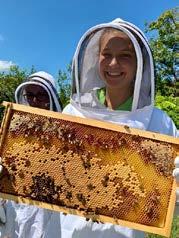
Creating a lasting impact. Be a Bee not only helped pollinators – it inspired a new wave of environmental stewards, each bringing their own ideas and priorities to the initiative.
How did you connect with The Bee Cause Project and Para La Naturaleza?
It all started with a jar of honey. A grocery store find led me to The Bee Cause Project, inspiring me to bring their mission to Puerto Rico.
For Para La Naturaleza, I connected with their team after hearing about their conservation work. That’s how I met Willy, their lead beekeeper, and together, we began restoring pollinator habitats.
Can you tell us about the process of creating Puerto Rico’s first bee sanctuary?
Willy proposed creating a permanent bee sanctuary. Be a Bee helped secure volunteers and initial funding, but more support was needed. That’s when The Bee Cause Project stepped in, connecting us with donors and providing the funding to launch Puerto Rico’s first dedicated bee sanctuary, ensuring a sustainable habitat for years to come.
What does being on the board of The Bee Cause Project mean to you?
Serving on the board allows me to continue my passion for environmental education and conservation. The Bee Cause Project gave me the platform to make a real impact in Puerto Rico, and now, I get to give back – bringing my perspective as a college student and conservation advocate to the table.
What excites you most about The Bee Cause Project’s future?
Environmental education is more important than ever, and I love seeing how The Bee Cause Project helps students connect with nature and discover the power of pollinators. At Yale, I’ve seen a growing wave of young environmentalists eager to take action. The Bee Cause Project is helping cultivate that movement, ensuring students don’t just learn about pollinators – they become stewards of their survival.
How has your experience with Be a Bee and The Bee Cause influenced your studies at Yale?
At Yale, I realized conservation isn’t isolated—it intersects with economics, governance, and global affairs. My work with Be a Bee and The Bee Cause inspired me to double major in Environmental Studies and Global Affairs, recognizing climate issues as borderless. My studies reinforced that effective conservation requires both mitigation and adaptation, driving my commitment to policy and environmental action.
Where do you see yourself making the biggest impact in the future?
I’m still exploring where I can make the greatest difference, but I know I want to focus on climate resilience and conservation at a global scale. No two communities experience climate change the same way, and I want to help create context-driven solutions that empower people and protect ecosystems.
What advice would you give to young people who want to make a difference?
Learn as much as you can. If you’re passionate about a topic – whether it’s pollinators or climate policy – seek out mentors, read, and ask questions. Knowledge is your most
powerful tool, and no one can take that away from you.
What’s one thing you wish more people knew about bees?
Bees aren’t just about honey! Most people think of bees in terms of stings or sweeteners, but they are essential to global food security and ecological balance. They are tiny but mighty, and the ripple effects of their work can be felt around the world.
If you could give your younger self one piece of advice, what would it be?
Your journey is a marathon, not a sprint. At 15, I had no idea how much my passion for bees would shape my future. But I’ve learned that every step – every connection, every lesson – builds toward something greater. The key is to stay curious, stay open to change, and trust the process.

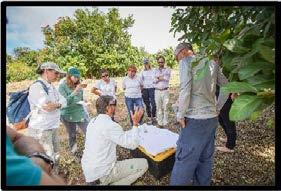
- we’re setting our sights even higher. We aim to expand our reach, provide more hands-on learning opportunities, and equip even more educators and students with the tools they need to protect pollinators. But we can’t do it alone. With your support—whether through donations, sponsorships, or spreading the word—we can continue to create lasting change.

Join us in making 2025 our most impactful year yet: info@thebeecause.org
» More teachers trained and certified via our digital badge through the Bee A Friend to Pollinators online course with Clemson Extension
» Expand training to more states in the US
» Renewal Grants for past Habitat Grant recipients to continue to grow their pollinator programs
» The addition of a Bee Sanctuary for Charleston and the Upstate, South Carolina as further opportunities for individuals and student groups to learn how to support pollinators
» Stipends for partnering schools to create spaces for native bees’ nesting needs
» Educational Kits including The Great Pollinator Count Participation Packets and the new book title The Great Pollinator Count by Susan Edwards Richmond
» Create and source new content for step-by-step ways to support local pollinators on any public or private campus
» Create customizable grant kits and provide innovative ways to blend literature and mindfulness in the classroom and the garden
» The addition of a new lesson concerning the impact of pollinators on our oceans
» Create a tabletop hive option for organizations
» Revamp the digital content to include information about honey bee behavior, the hierarchy of the hive, and honey production
» Honor more bee grant applicants
» Create more bee curricula for all grant recipients
Our heartfelt gratitude goes to our incredible board members—passionate, environmentally minded leaders who bring knowledge, experience, and dedication to The Bee Cause. Your diverse perspectives and unwavering commitment help us expand our impact and create a world where pollinators and people thrive together. We couldn’t do this without you!



TAMI ENRIGHT
Executive Director
Tami’s backyard beekeeping hobby turned into a passion for education, leading her to teach apiculture and found The Bee Cause Project. As Co-Founder and Executive Director, she develops STEAM curriculum and leads our network of schools, sponsors, and partners shaping the next generation.

LIBBIE SUMMERS MEMBER

ISABELLE RAMSEYER SECRETARY
Emilee Elingburg spent a decade as an elementary school teacher before bringing her passion for education to The Bee Cause Project. As Director of Educational Programs, she helps connect students with pollinators through engaging lessons, hands-on experiences, and advocacy.

SUSAN JOHNSON TREASURER

TED DENNARD CO-FOUNDER AND MEMBER
2024
Atlantic Packaging
Delaware North
E2 Concierge
Fidelity Charitable
Freese and Nichols
Gibbes Museum of Art
McJunkin Family Foundation
Ohana East Family Foundation
Promix Nutrition
Savannah Bee Company
Sterling Seacrest Pritchard
The Blackbaud Giving Fund
The Denver Foundation
Walmart
Whole Foods Market Foundation
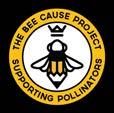
Amy Dabbs
Ted Dennard
Becky Griffin
Susan Johnson
Kathryn Kowalczuk
Isabelle Ramseyer
Michael Riley
Elisa Strickler
EDUCATIONAL PARTNERS
Bee City USA Charleston
Clemson Cooperative Extension
Cove Creative Studio
SC-7
South Carolina 4-H Youth Development
